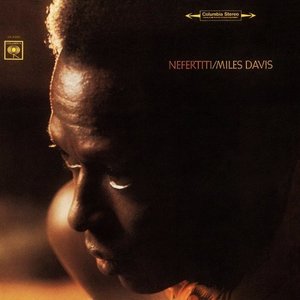Nefertiti, the fourth album by Miles Davis' second classic quintet, continu… Read Full Bio ↴Nefertiti, the fourth album by Miles Davis' second classic quintet, continues the forward motion of Sorcerer, as the group settles into a low-key, exploratory groove, offering music with recognizable themes -- but themes that were deliberately dissonant, slightly unsettling even as they burrowed their way into the consciousness. In a sense, this is mood music, since, like on much of Sorcerer, the individual parts mesh in unpredictable ways, creating evocative, floating soundscapes. This music anticipates the free-fall, impressionistic work of In a Silent Way, yet it remains rooted in hard bop, particularly when the tempo is a bit sprightly, as on "Hand Jive." Yet even when the instrumentalists and soloists are placed in the foreground -- such as Miles' extended opening solo on "Madness" or Hancock's long solo toward the end of the piece -- this never feels like showcases for virtuosity, the way some showboating hard bop can, though each player shines. What's impressive, like on all of this quintet's sessions, is the interplay, how the musicians follow an unpredictable path as a unit, turning in music that is always searching, always provocative, and never boring. Perhaps Nefertiti's charms are a little more subtle than those of its predecessors, but that makes it intriguing. Besides, this album so clearly points the way to fusion, while remaining acoustic, that it may force listeners on either side of the fence into another direction.
Miles Davis trumpet
Wayne Shorter tenor sax
Herbie Hancock piano
Ron Carter bass
Tony Williams drums
rec. 1967
Miles Davis trumpet
Wayne Shorter tenor sax
Herbie Hancock piano
Ron Carter bass
Tony Williams drums
rec. 1967
More Genres
No Artists Found
More Artists
Load All
No Albums Found
More Albums
Load All
No Tracks Found
Genre not found
Artist not found
Album not found
Search results not found
Song not found
Nefertiti
Miles Davis Lyrics
To view the lyrics for a particular track, select it from the track list above, or search for it.
